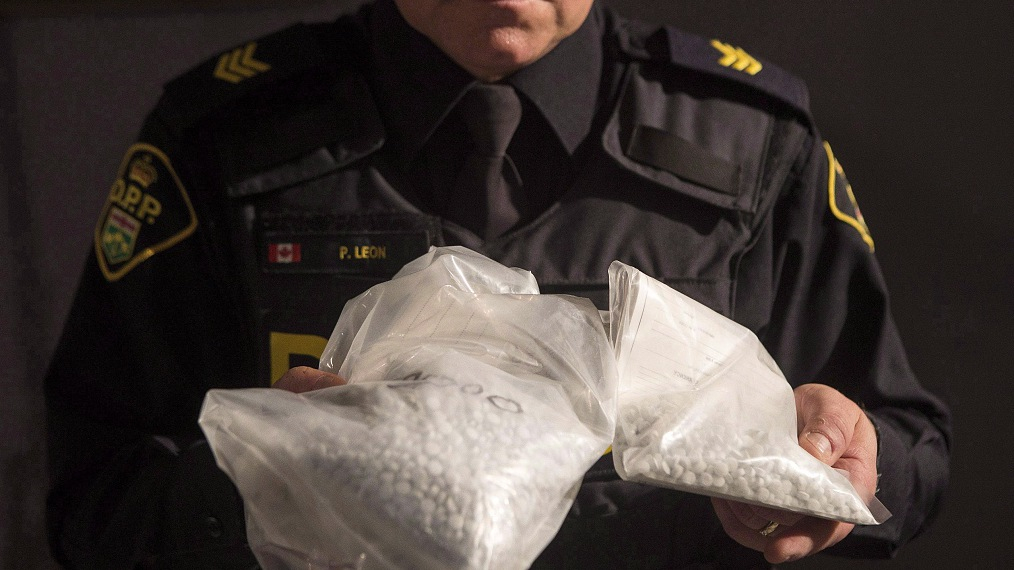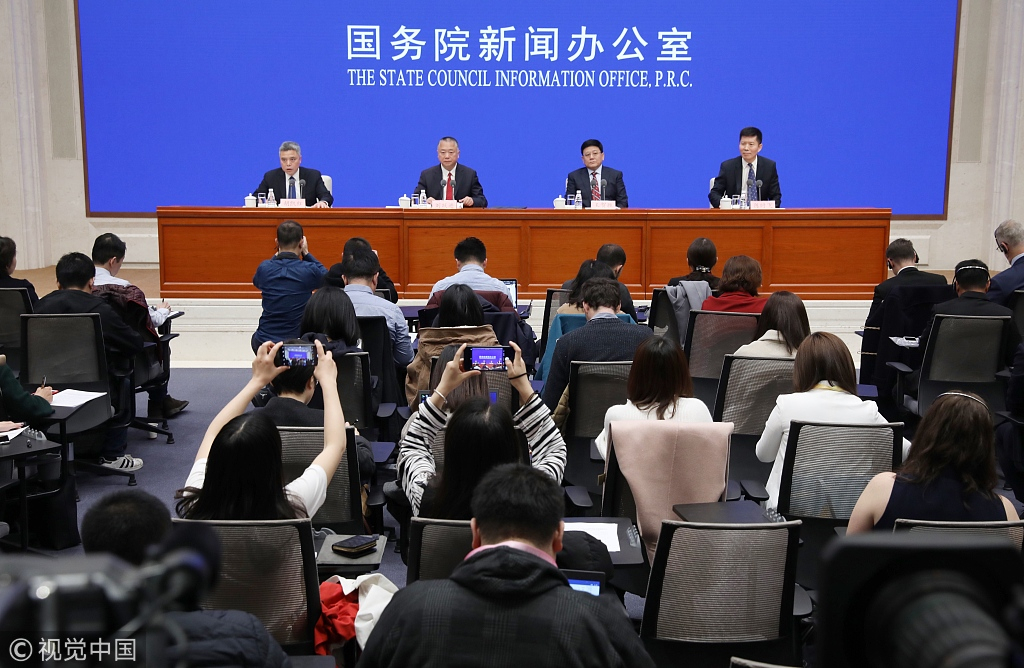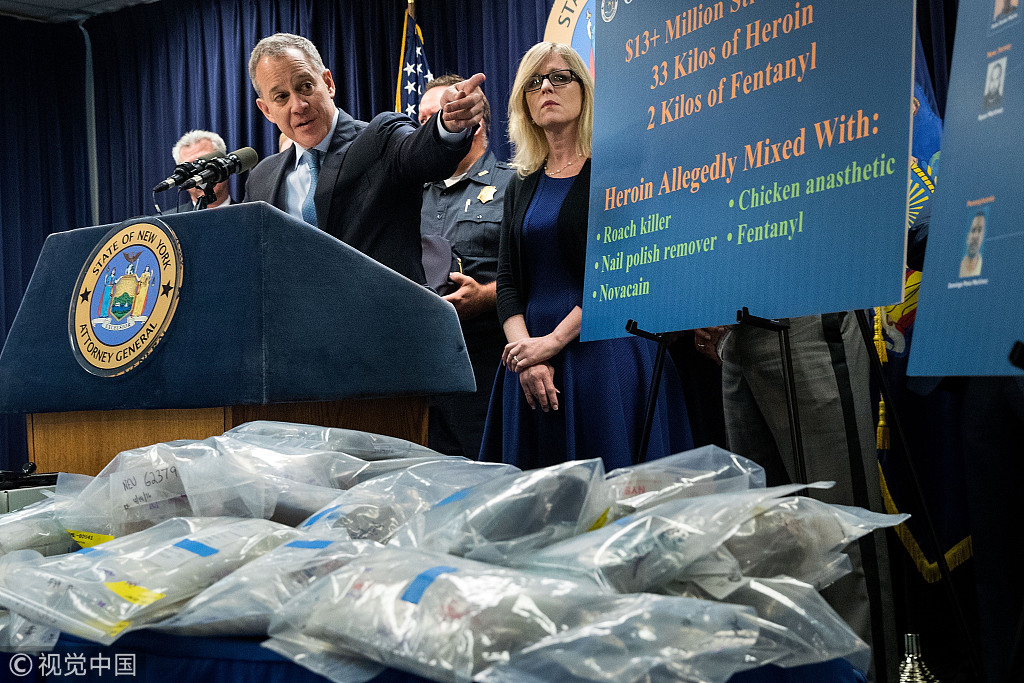
Opinion
22:22, 01-Apr-2019
China fulfills its fentanyl pledge with concrete actions
Liu Jianxi

Announcing the toughest measure so far against illicit fentanyl on Monday, China is fulfilling the pledge President Xi Jinping made with his U.S. counterpart Donald Trump during the Argentina meeting last December.
In the joint announcement by the Ministry of Public Security, the National Health Commission and the National Medical Products Administration, China, as a country of its word, decided that all fentanyl-related substances will be added to its control list from May 1.
As a powerful synthetic drug 30 to 50 times more potent than heroin, fentanyl rises to be one of the most serious headaches for the global anti-drug campaign. Worse still, fentanyl's synthetic nature means producers can easily keep the drug off the illegal list by tweaking its molecules, making the anti-drug campaign even more difficult.
The opioid crisis is especially severe in the United States. Statistics from the U.S. Center for Disease Control and Prevention suggests that fentanyl has overtaken heroin and oxycodone to be the most deadly drug in the country, killing tens of thousands of people annually.

The State Council Information Office holds a press conference on the progress of the control of fentanyl substances in Beijing, April 1, 2019. /VCG Photo
The State Council Information Office holds a press conference on the progress of the control of fentanyl substances in Beijing, April 1, 2019. /VCG Photo
The Chinese government is sincere and determined to crack down upon drug abuse and has taken a slew of measures to nip opioid-related crimes in the bud.
The country already controls 25 variants of fentanyl, compared to the UN's 21. By controlling all fentanyl-related drugs as a group, China's latest move has fundamentally prevented producers from jiggering the formula to escape punishments.
China is doing its utmost to curb illicit fentanyl. This contrasts to Washington's previous allegations against Beijing. Earlier, some so-called American elites have been repeatedly accusing Beijing of being the "primary source" for the fentanyl flow in the United States, but ironically, have provided no solid evidence so far.
It is the U.S. itself, rather than China's "lax" regulation, that is to blame for the opioid epidemic. Will the U.S. fentanyl crisis be solved if there was no fentanyl-related substance shipped to the country? Apparently no.
The over-prescription of fentanyl-included painkillers is a common phenomenon in the United States. The American population, accounting for only 5 percent of the world's total, has consumed about 80 percent of the world's opioids, according to media reports. The astonishing figure is partly the answer to the United States' opioid epidemic.
Given the impressive profits from fentanyl-related drugs, American pharmacies and doctors have been touting opioids in medical use. Some pharmaceutical tycoons even funded research institutes on opioid-related studies, encouraging them to reach an opioid-harmless conclusion, according to media reports.
The profit chain from researchers to pharmacies to doctors has drawn the American society into a vicious circle. While China is moving to ban all fentanyl-related substances, figures from the U.S. Drug Enforcement Administration show that seizures of fentanyl analog are falling in the United States.

New York Attorney General Eric Schneiderman speaks during a press conference announcing Friday that authorities in New York State have made a record drug bust, seizing 33 kilograms of heroin and 2 kilograms of fentanyl September 23, 2016. /VCG Photo
New York Attorney General Eric Schneiderman speaks during a press conference announcing Friday that authorities in New York State have made a record drug bust, seizing 33 kilograms of heroin and 2 kilograms of fentanyl September 23, 2016. /VCG Photo
Drug culture is another major contributor. It is worth noting that the marijuana legalization campaign swept across the United States in 2018. So far, recreational marijuana is legal in 10 states and medical marijuana in 33, Business Insider reported.
To climb out of the crisis, the U.S. should reflect more upon itself: Why there are huge demands for fentanyl in the first place? Has the government done enough? Even if China bans all illicit fentanyl, will the U.S.'s opioid crisis be addressed?
The crackdown upon drugs is an international campaign. China is willing to cooperate with the United States and offer China's solution and wisdom in this regard. In Monday's announcement, China stressed that it would enforce its new regulations and laws "even more comprehensively."
While China is shouldering its due responsibilities as a major power, whether Washington is prepared to do its share and focus more on its own domestic issues is waiting to be seen.
(If you want to contribute and have specific expertise, please contact us at opinions@cgtn.com.)

SITEMAP
Copyright © 2018 CGTN. Beijing ICP prepared NO.16065310-3
Copyright © 2018 CGTN. Beijing ICP prepared NO.16065310-3